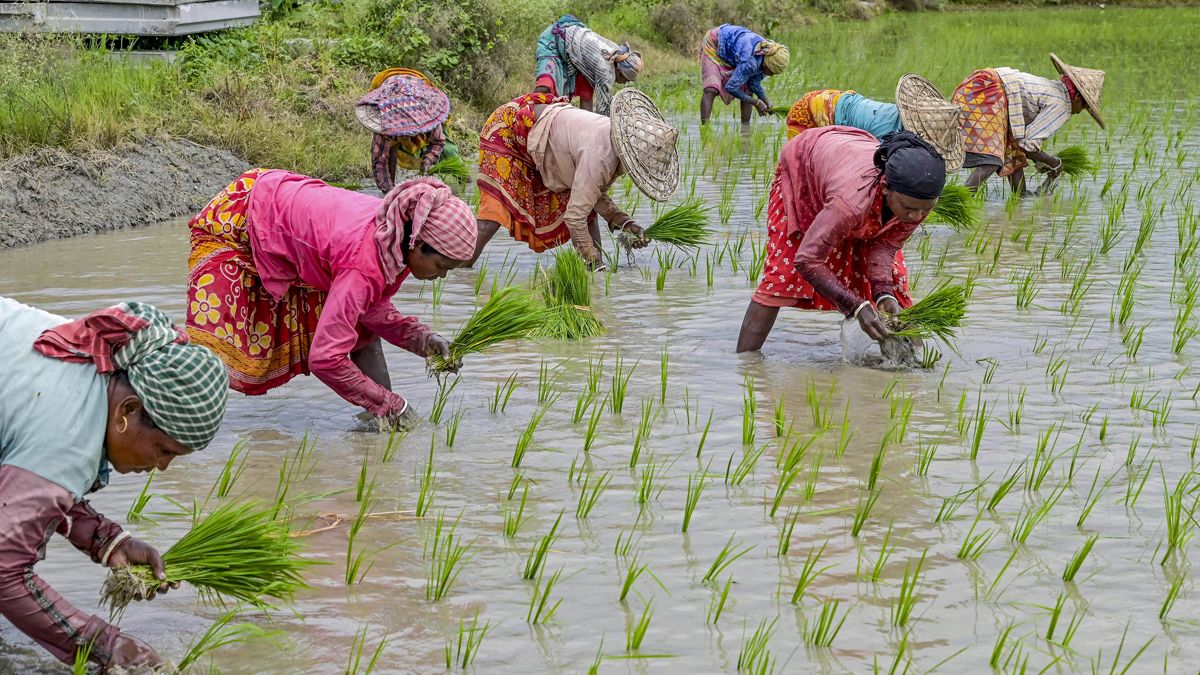Union cabinet approves Prime Minister Dhan-Dhaanya Krishi Yojana; Annual outlay of ₹24,000 crore
 Representative image | AP
Representative image | AP
In a major move to uplift India’s lagging agricultural regions, the Union Cabinet on Tuesday approved the Prime Minister Dhan-Dhaanya Krishi Yojana, a six-year initiative aimed at transforming farm output and rural livelihoods in 100 underperforming districts across the country.
The scheme, which is set to begin in the financial year 2025-26, comes with an annual outlay of ₹24,000 crore and is expected to benefit around 1.7 crore farmers, Union Minister Ashwini Vaishnaw said.
The new scheme draws inspiration from a similar and successful ‘aspirational districts programme.’ This is the first government initiative focused exclusively on agriculture and allied sectors.
Vaishnaw said the 100 districts will be selected based on three key indicators—low agricultural productivity, low cropping intensity, and inadequate access to credit. Each state and union territory will have at least one district included in the programme, with the final list based on the share of net cropped area and operational holdings in each region. “The policy of the NDA government has been to help the last person in the queue, and even regions,” the minister said.
Officials said the aim of the scheme is to address persistent gaps in India’s farm sector by encouraging crop diversification, improving irrigation, promoting sustainable and organic farming, and enhancing post-harvest storage infrastructure at the block and panchayat levels.
It will also focus on improving access to both short- and long-term farm credit, particularly in areas where institutional lending remains weak.
What sets the Dhan-Dhaanya Yojana apart is its strategy of convergence. It brings together 36 ongoing schemes from 11 central ministries, along with state-level initiatives and private partnerships, to ensure coordinated development at the ground level. Each participating district will prepare its own Agriculture and Allied Activities Plan, overseen by a local Dhan-Dhaanya Committee that includes government officials, subject experts, and progressive farmers.
These plans will align with national priorities such as natural farming, water and soil conservation, and self-sufficiency in food production.
To track progress, a digital dashboard will monitor 117 key performance indicators on a monthly basis. Central Nodal Officers will be appointed for each district to review implementation on the ground, while NITI Aayog will provide guidance and periodic evaluations of the plans and their outcomes.
Officials believe that the scheme will not only raise productivity and incomes in the targeted districts but also contribute to a broader improvement in national agricultural indicators. As the most backward regions catch up, the overall health of India’s farm economy is expected to improve.
The government sees this as a crucial step toward achieving Atmanirbhar Bharat—a self-reliant India—through stronger, more resilient rural communities.
“As these 100 districts rise, so will the nation’s agricultural performance,” a senior official said. “This is about levelling the field and unlocking India’s full farming potential.
Business